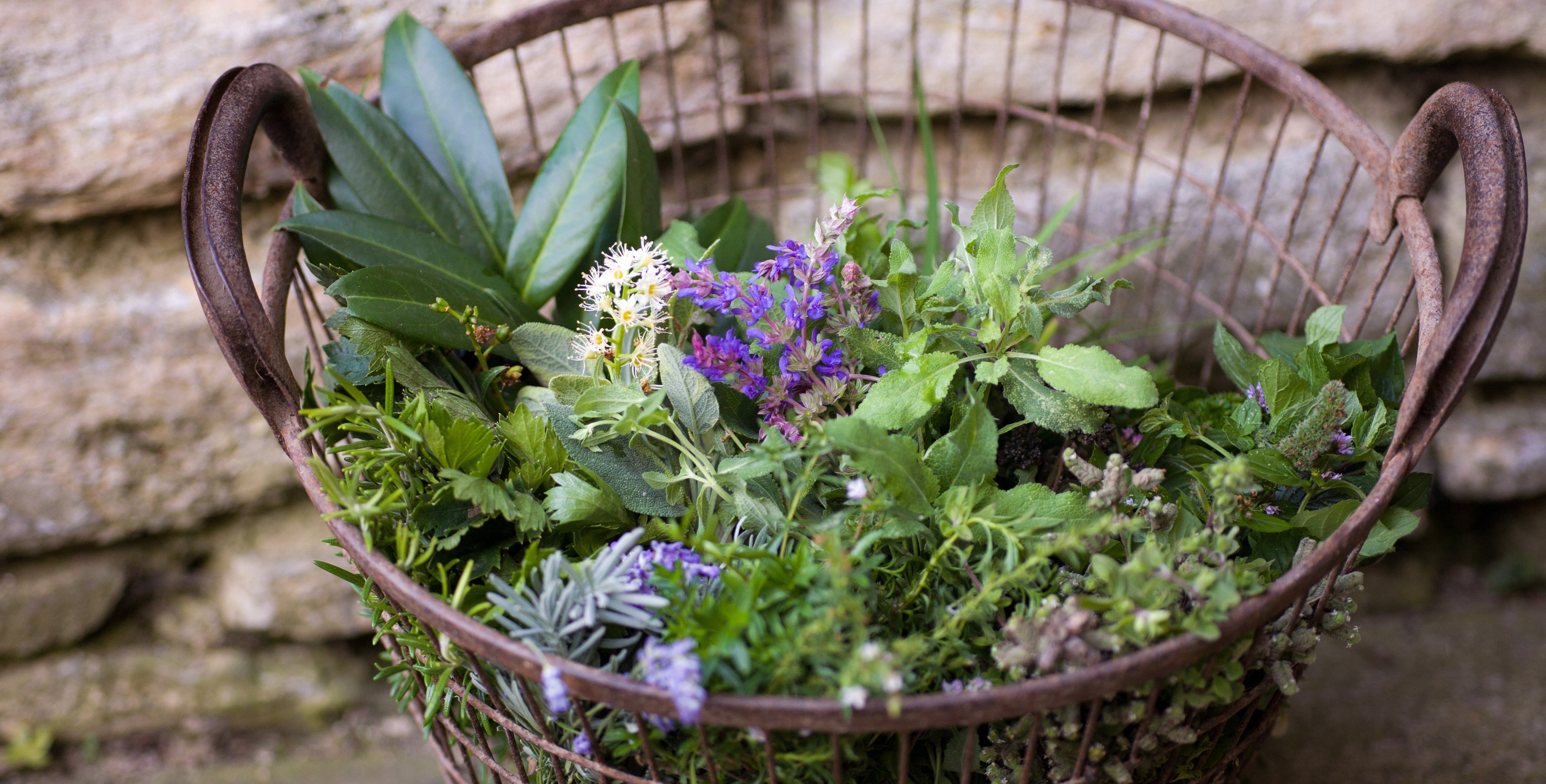Enjoying herbs in the green area

Tart, ethereal rosemary, fresh, juicy basil, crisp, pungent chives: with a herb bed, you always have fresh herbs to hand - and the best thing is that you don't necessarily need a garden. We'll tell you which herbs can be planted together, how to care for them, which dishes they season well and many more tips and tricks.
Which herbs should be planted together?
Basically: plant annual herbs and perennial herbs together and group the herbs according to their needs and growth height.- Mediterranean herbs such as lavender, thyme, sage or rosemary need plenty of sun and little water.
- Rosemary promotes the growth of basil.
- Basil protects neighboring herbs and tomato plants from pests (e.g. whitefly and mildew).
- Lemon balm generally promotes the growth of neighboring herbs.
- Parsley grows well in light to semi-shady places without direct sunlight, it needs plenty of water but does not tolerate waterlogging.
- Chervil likes it cool and shady.
- Preferably not together: Marjoram and thyme
Planting herbs - here's how:
- Sow seeds (e.g. from Bingenheimer Saatgut) in spring according to instructions.- Pre-planting: Sow the seeds in soil that is as low in nutrients as possible (e.g. specially designated growing soil or coconut swell tablets), the delicate roots of the little plants will actively search for nutrients and grow towards them.
- Is the seedling a rich green color? Great. If the leaves become paler over time, the plant is hungry. Then it's time to repot the plant in more nutrient-rich soil or fertilize it.
- Move it outdoors as soon as roots and a strong plant above ground have developed.
- Label the seeds with name and date.
At a glance:
Tips & tricks
Tip for garden owners: Building a herb snailHerb snails offer various culinary herbs the perfect conditions for their respective soil and light requirements in the smallest of spaces. For around ten herb plants, you should plan for a diameter of three meters and a sunny spot. The herb snail is also divided into four different climate zones with different soil compositions - from dry to moist, depending on the "preferences" of the respective herbs.
The herb snail: space-saving, original and practical for planting herbs
In winter, you should protect perennial herbs in the garden from frost, for example with a layer of straw on the beds.
Tip for balcony owners: If you have little space on your balcony, you can also plant your herb garden vertically. For example, with a converted Euro pallet.
Saves space on the balcony: vertical herb garden
If you don't have a garden or balcony, grow the plants in pots. Choose larger pots to give the herbs room to grow.
Watering: Herbs are best watered in the morning
Picking: also better in the morning
Dead leaves and stems should be removed regularly to ensure your herbs grow well.
Have fun gardening and enjoy!
A big plus not only for enjoyment
Spices not only enrich the taste, they also contain important vitamins and trace elements. For additional nutrients, it's always worth taking a look at our store.




